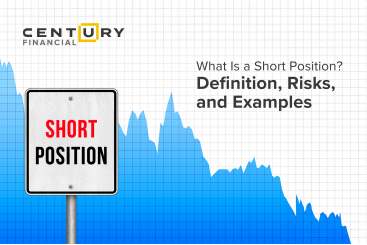Friday, August 30, 2024
U.S. 2024 Elections: Different Asset Classes in Focus
By Century Financial in 'Blog'


As the 2024 U.S. presidential election approaches, investors are closely watching the policies proposed by Kamala Harris and Donald Trump, as they could have significant implications for financial markets. Whether it’s equities, fixed income, commodities, or currencies, the outcome of this election is likely to create both risks and opportunities for investors. Let’s look at each asset class:
Equities
Harris Presidency:
If Harris wins, we can expect a continued focus on green energy and healthcare. Sectors aligned with these initiatives, such as renewable energy and biotech, will likely benefit. However, Harris' proposal to increase corporate taxes from 21% to 28% could weigh on broader equity markets, particularly smaller companies in the U.S.
Trump Presidency:
U.S. equities saw significant gains, particularly in technology, financials, industrials, and energy sectors. The Tax Cuts and Jobs Act of 2017, which reduced corporate tax rates from 21% to 15%, was a major boon for tech companies, many of which had significant overseas cash reserves. A lower corporate income tax rate would make the US a more attractive location for business investment, creating economic opportunities for American households and reducing incentives for businesses to move operations or profits overseas. Repatriating these funds allowed for increased investments, stock buybacks, and dividends, further boosting stock prices.

Bonds
Harris Presidency:
A Democratic win might lead to lower yields, offering more attractive returns for bond investors. Disinflationary pressures could allow the Fed to adopt a more dovish stance, leading to lower interest rates and higher bond prices. In the past, declining yields have been favourable for bond markets.
Trump Presidency:
The impact of trade tariffs and budgetary stimulus could limit the Federal Reserve's ability to cut rates, leading to higher yields. Historically, periods of higher yields have been challenging for bond markets, with total returns on the Bloomberg U.S. Aggregate Bond Index averaging -0.5% during such periods.
.jpg)
Commodities
Harris Presidency:
A Harris administration will likely boost demand for clean energy metals, such as lithium and copper, essential for renewable energy technologies. Over the past decade, prices for these metals have surged by 150%, reflecting growing demand for sustainable energy solutions. However, fossil fuels may face regulatory challenges, leading to potential underperformance.
Trump Presidency:
Fossil fuel expansion under Trump could stabilise oil prices, benefiting energy-dependent commodities. During his first term, oil prices rose, driven by increased production and deregulation. However, the long-term sustainability of these gains is uncertain, especially in the face of global shifts towards renewable energy.
Metal price scenarios
Some would reach historical peak for an unprecedented, sustained period under a net-zero emission by 2050 scenario.
(thousands of 2020 US dollars a metric ton)

Source: International Energy Agency (IEA); Schwerhoff and Stuermer(2020); US Bureau of Labor
Crude Oil - WTI
.jpg)
Source: Trading Economics
Currencies
Harris Presidency:
A Kamala Harris victory could lead to a gradual weakening of the U.S. dollar. Her administration’s less aggressive trade policies and a more dovish Federal Reserve, which might lower interest rates to support economic growth, could reduce the appeal of dollar-denominated assets to foreign investors. Harris’s focus on sustainable fiscal policies and reducing economic inequality could also contribute to a more cautious approach to monetary tightening, further pressuring the dollar. A weaker dollar, while challenging for importers, could benefit U.S. exporters by making American goods more competitive abroad, potentially narrowing the trade deficit and supporting domestic manufacturing.
Trump Presidency:
U.S. equities saw significant gains, particularly in technology, financials, industrials, and energy sectors. The Tax Cuts and Jobs Act of 2017, which reduced corporate tax rates from 21% to 15%, was a major boon for tech companies, many of which had significant overseas cash reserves. A lower corporate income tax rate would make the US a more attractive location for business investment, creating economic opportunities for American households and reducing incentives for businesses to move operations or profits overseas. Repatriating these funds allowed for increased investments, stock buybacks, and dividends, further boosting stock prices.
DXY Dollar Index

Source: Trading Economics
The Bottom Line
The financial markets are poised for a rollercoaster ride. Whether it’s Harris's green energy push or Trump’s deregulation playbook, investors are in for a wild but rewarding journey. History tells us that election years often bring surprises.
It’s a game of strategy and timing, and the stakes have never been higher. For a data-packed deep dive into how elections shape stock performance, check out our insightful piece: ‘How Stocks Perform in Election Years’. It’s the perfect read to get ahead in this high-stakes season.
This marketing and educational content has been created by Century Financial Consultancy LLC (“Century”) for general information only. It does not constitute investment, legal, tax, or other professional advice, nor does it constitute a recommendation, offer, or solicitation to buy or sell any financial instrument. The material does not take into account your investment objectives, financial situation, or particular needs.
The opinions expressed by the hosts, speakers, or guests are their own and may change without notice. Information is based on sources we consider to be reliable; however, Century does not guarantee its accuracy, completeness, or timeliness and accepts no liability for any loss arising from reliance on this content.
Trading and investing involve significant risk, and losses may exceed initial deposits. Past performance is not indicative of future results. CFDs and other leveraged products are complex instruments that may not be suitable for all investors. Please ensure you understand how these products work, the associated risks, and seek independent professional advice if necessary.
Century is licensed and regulated by the UAE Capital Market Authority (CMA) under License Nos. 20200000028 and 301044.
Please refer to the full risk disclosure mentioned on our website.




__1439480927.jpg)




.png)
.png)
.png)
.png)


